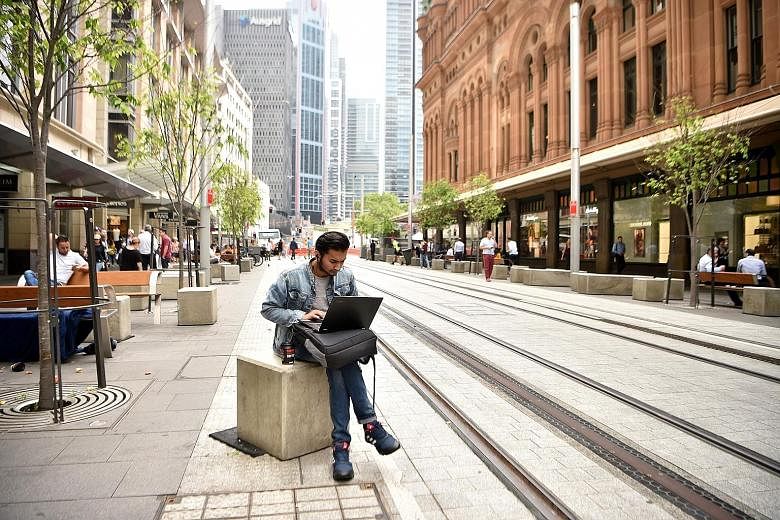SYDNEY • Australian firms suffered the worst slump in conditions since the 2008 global financial crisis as evidence mounts that the economy slowed in the latter part of last year.
The business conditions index - measuring hiring, sales and profits - dropped to two last month from 11 a month earlier, a National Australia Bank (NAB) report showed yesterday. A gauge of employment fell to four from nine in November, while profitability plunged to zero from eight. A separate confidence index was unchanged at three.
NAB chief economist Alan Oster said the drop had been "broad-based" across all states and industries outside of mining.
"These declines taken at face value suggest a significant slowing in business activity," he added. "There could be some implications for the labour market and business capital expenditure."
The Australian dollar fell after the report, buying 71.47 US cents at 12.10pm in Sydney compared with 71.57 before its release.
The result dovetails with slower economic growth in the third quarter as falling property prices threaten to throw a wet blanket over the Australian economy.
Money markets are growing nervous and traders are pricing in about a 70 per cent chance of an interest rate cut by the year end - despite the central bank saying it expects the next move to be an increase.
"Interpreting data around the holiday period can be difficult," Mr Oster said. "With confidence remaining below average and forward orders having also declined, our expectation is that, at the very least, a significant portion of the decline in business conditions will persist."
While Australia's wage growth has been anaemic in the past five years, hiring has accelerated since 2017 and consumption held up as households opted to save less.
The concern now is that consumers will hunker down in response to declining property prices, known as the wealth effect, which could hit already struggling retailers hard.
Australia's central bank has kept rates at a record-low 1.5 per cent since 2016 as it tries to spur hiring and tighten the labour market to encourage faster wage growth. It has had some success, with unemployment falling to 5 per cent.
Policymakers will hold their first meeting for the year on Feb 5.
BLOOMBERG

